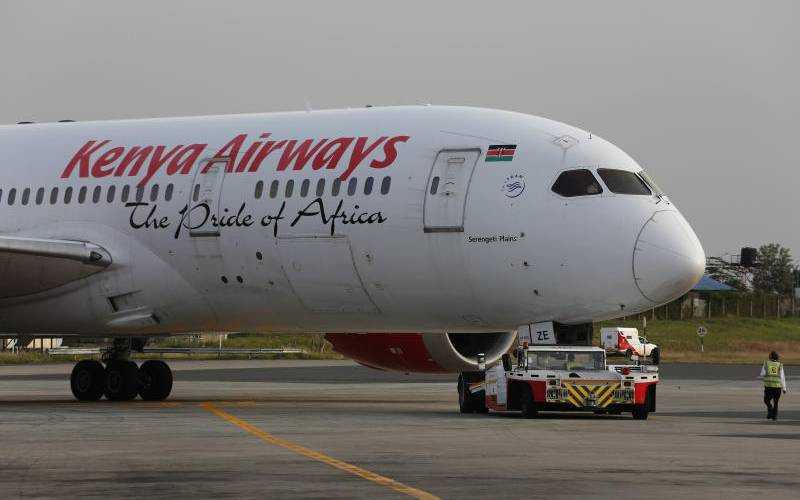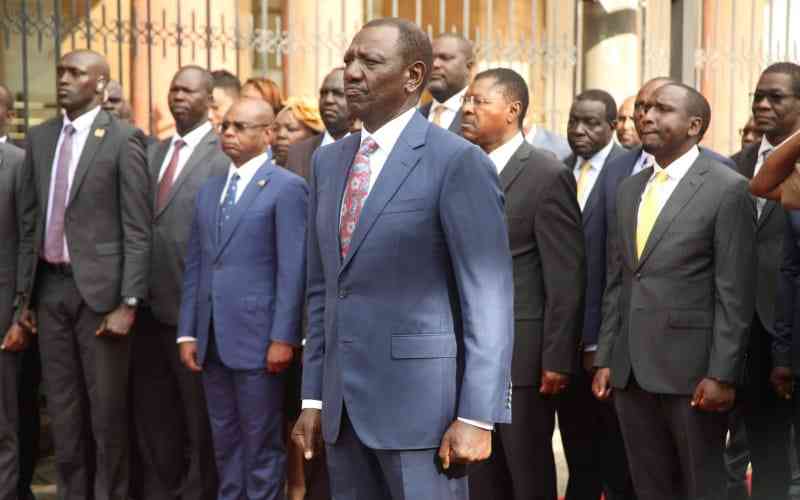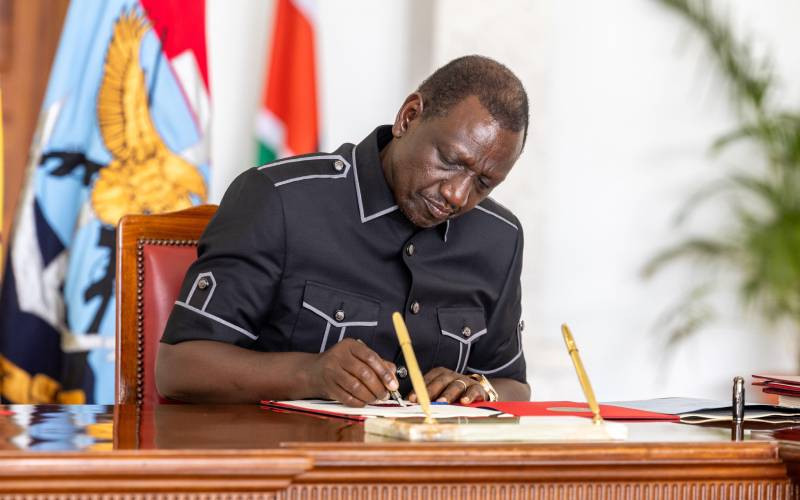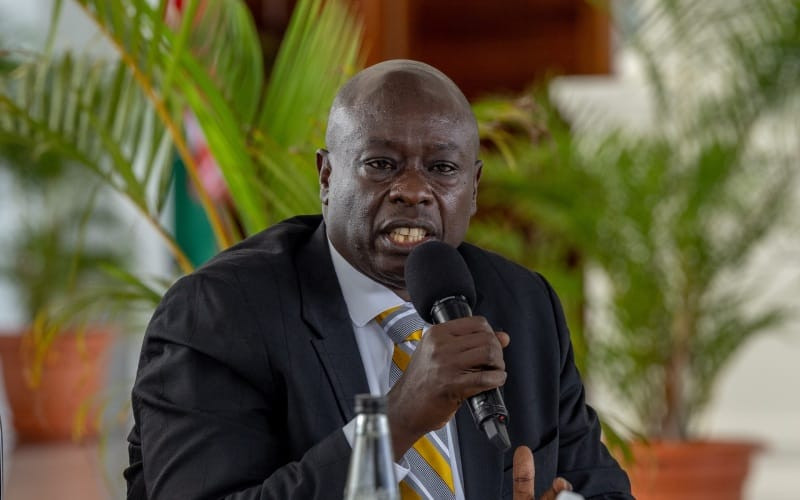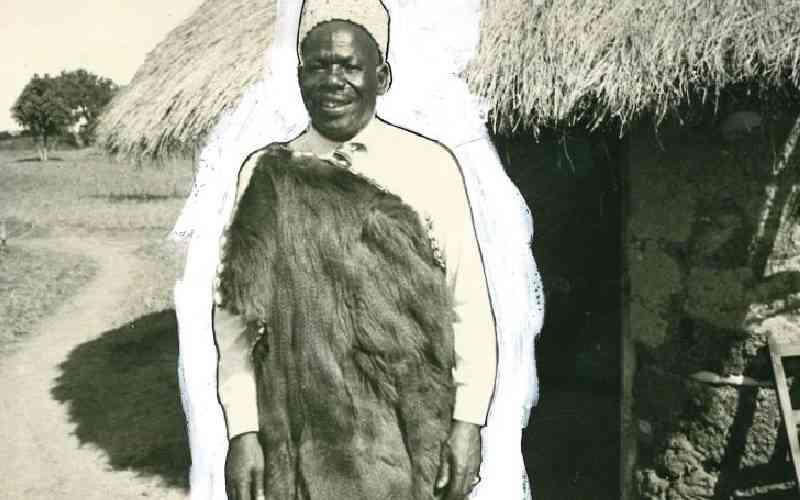
When the government grabbed and exiled a radical prophet whose ideas they considered toxic over 700 kilometers away, the administrators thought they had quelled a rebellion. Elijah Masinde had founded Were in 1930s and taught his a followers to worship only one God, Were, and oppose any manifestation of colonialism.
Masinde's conviction of treason and his subsequent deportation to Lamu in 1948 where he was held in isolation until 1960 did not crash Dini Ya Musambwa, the sect the prophet had founded.
A year later they pounced on one of Masinde's disciples, a tailor Lukas Pkech, who originally hailed from West Pokot.
Pkech was born in 1915 in Mwino, but his family later moved to Parau. He attended Government African School in Kapenguria in 1932 and later went to Kabete Native Industrial Training Department in 1934, and for four years trained as a tailor and later as a blacksmith.
He had been arrested in August 1949 alongside a number of his allies charged with belonging to an unlawful movement.
Instead of locking up the tailor in Lamu, the government instead made a fatal mistake when it shipped Pkech to Mombasa where he was to be subjected to hard labour for 30 months.
Pkech staged an ingenious jail break from a labour camp in Gilgil to the consternation of his followers who attributed the feat to his supernatural powers and somehow walked back to Baringo in 1950.
Along the way he used his prowess to convince a new convert, Lobuyet to release one of his daughters, Chemosop who instantly became his wife. He started to promote the activities of Dini Ya Musambwa and succeeded in converting thousands of pastoralists to be his followers to the consternation of white missionaries who had labored for decades and won only a handful of souls for Christ.
When the Baringo District Officer, Alan Steven got wind of the escaped convict's activities which had mersmerised his followers who were awed by his prophesy that all whites were to be driven out of the area shortly, he acted swiftly.
On April 24, 1950, he dispatched a contingent of security personnel some who had come from as far as Nakuru to confront Pkech, who had reportedly held his followers in a powerful spell.
The heavily armed government troops waylaid Pkech and his followers at Kolloa. Some historical accounts tell of a breakdown in command where some orders issued by top cops were ignored by some members of the multidisciplinary force.
In the ensuing melee, bullets met spears as Dini Ya Musambwa followers faced off with the colonial forces. At one point the security forces ran out of ammunition but by the time the guns fell silent, the unthinkable had happened an Assistant Superintendent of Police, George Taylor; Assistant Inspector of Police, Robert Cameron; Stevens, the DO and an African police officer lay dead.
Pkech and over 50 of his followers too had been wiped out by a government that would later organise more punitive operations to rid the country of what they termed as a death cult. The locals were disarmed and forced to sell off livestock to pay compensation.
After the massacre, a further 12 of Pkech's followers were sentenced to hang while the government seized 5,000 head of cattle, from the locals as a collective communal punishment. The locals were further forced to do collective labour. As for Masinde, the government made sure that he was behind bars in Lamu for 12 years and even after releasing him in 1960, the post independent government treated him with suspicion up to the time of his death in 1987.
Seventy four years later, the government is grappling with a cult which has no political connection but has nevertheless cost the lives of over 200 people who have sold all their belongings and starved to death so as to meet Jesus Christ.
 The Standard Group Plc is a multi-media organization with investments in media platforms spanning newspaper print
operations, television, radio broadcasting, digital and online services. The Standard Group is recognized as a
leading multi-media house in Kenya with a key influence in matters of national and international interest.
The Standard Group Plc is a multi-media organization with investments in media platforms spanning newspaper print
operations, television, radio broadcasting, digital and online services. The Standard Group is recognized as a
leading multi-media house in Kenya with a key influence in matters of national and international interest.


